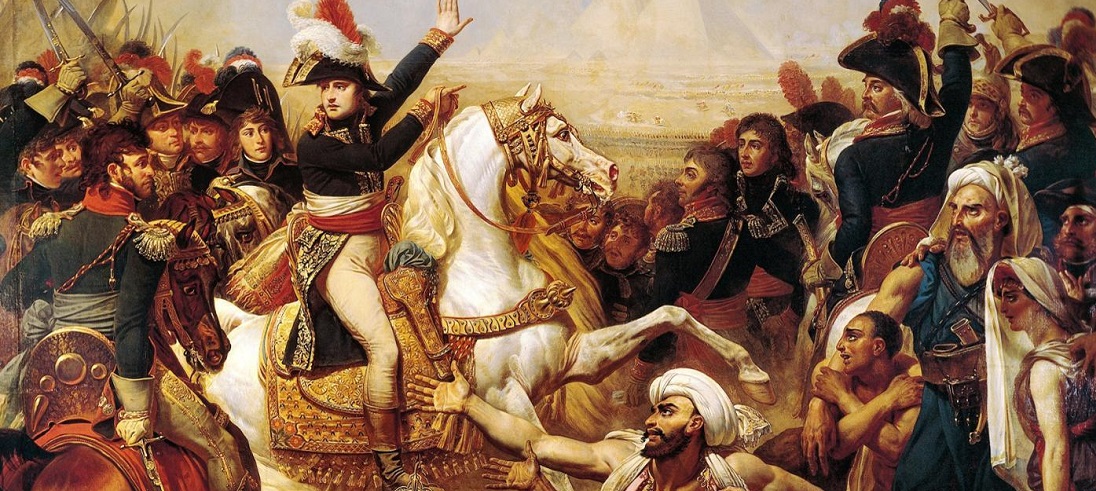Institute Faculty
Rafe Blaufarb - Director and Ben Weider Eminent Scholar in Napoleonic Studies
Cathy McClive - Ben Weider Chair in French Revolutionary Studies
Donald D. Horward ✝ - Professor, Founding Director
Affiliated Faculty at Florida State University
Michael Creswell - Associate Professor
Jonathan Grant - Professor
George Williamson - Associate Professor
Laurie Wood - Assistant Professor
Biographies
Rafe Blaufarb - Director and Ben Weider Eminent Scholar in Napoleonic Studies
Dr. Blaufarb is a specialist in Revolutionary and Napoleonic France. His most recent publications include: The Revolutionary Atlantic: Republican Visions, 1760-1830 (Oxford, 2017); The Great Demarcation: The French Revolution and the Invention of Modern Property (Oxford, 2016), The Politics of Fiscal Privilege in Provence, 1530s-1830s (Catholic University of America, 2012), Napoleonic Foot Soldiers and Civilians: A Brief History with Documents (Bedford, 2011), and Napoleon: A Symbol for an Age (Bedford, 2007). He is also the author of several books on the social and political history of the French military during this period: The French Army, 1750-1820: Careers, Talent, Merit (Manchester, 2002) and Bonapartists in the Borderlands: French Exiles and Refugees on the Gulf Coast, 1815-1835 (Tuscaloosa, 2006). He has published articles in the American Historical Review, Annales, H.S.S., Journal of Modern History, Past & Present, Comparative Studies in Society and History, French Historical Studies, and Annales Historiques de la Révolution Française on the French army, the French nobility, noble fiscal privilege, and the geopolitics of Latin American independence.
Cathy McClive - Ben Weider Chair in French Revolutionary Studies
Dr. McClive specializes in the social and cultural history of medicine, embodiment, gender, sexualities and expertise in early modern France. Her first monograph Menstruation and Procreation in Early Modern France (Ashgate, 2015) argues that early modern menstruating bodies were not stable signifiers. It questions our assumptions about the gendering of menstruation in the past and explores the complexities of early modern understandings of the relationship between menstruation, menstrual blood and reproduction. This work was described by a reviewer as a ‘highly original and important book’ and an ‘excellent corrective to… the work of Laqueur’ on structural sexual differences.
Her article, 'Masculinity on Trial', published in History Workshop Journal in 2009, which argues that the male body could be just as uncertain and opaque as the more frequently-studied female body, is one of fourteen articles, chosen from the journal's archives over forty years, currently available free online (until January 2016) in a new virtual issue celebrating Gender and Early Modern Histories edited by Laura Gowing.
She is currently working on three new major research projects. The first, which developed out of research undertaken during a junior EURIAS fellowship at the Collegium de Lyon in 2011-2012, is a microhistorical analysis of the Lyonnais Cause Célèbre of 1767, the disappearance of Claudine Rouge. The Rouge affair will act as a window into the structures, practice and everyday application of legal medicine (or medical expertise) in eighteenth-century France as well as a vehicle for exploring the development of microhistorical methodologies. As part of this project she is currently exploring tensions between venality and expertise in French legal medicine. Further archival research has been supported by a mobility grant from the Fondation Maison des Sciences de l'Homme (2016) and a BA/Leverhulme Small Grant SG161958 (2016-2017).
The second project is a critical edition of an unpublished seventeenth-century French midwifery text written in the form of a letter on ‘the art of delivery’ by mistress midwife at the Hotel-Dieu of Clermont-Ferrand, Mme Baudoin, to Parisian society physician Dr Vallant ,'Marie Baudoin, Epistolary Midwifery: Letter to Dr. Vallant on the Art of Childbirth (1671). A Bilingual Edition', to be published in the Other Voice in Early Modern Europe series.
The third is a body-centred analysis of the scandal between stigmatic apprentice nun Catherine Cadiere and her predatory confessor Jesuit priest Jean-Bpatiste Girard which led to a celebrated trail for imposture, spiritual incest and enchantment in 1730s Provence. This is tentatively titled: Catherine Cadiere's Body: Stigmata on Trial in Eighteenth-Century France.
Dr. McClive is also interested in the gendering of interpersonal violence and attitudes towards infant-feeding, particularly the help and advice available to breast-feeding mothers and issues surrounding tongue tie in early modern France.

